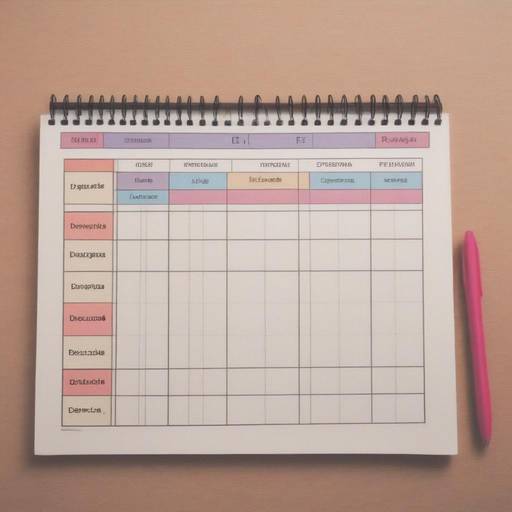
Introduction:
Throughout our lives, we face both positive and negative situations that significantly impact our mental and emotional state. The way we address these situations and the attitudes we adopt influence our perception of the world and our mental health in general.
In this article, we will explore how to integrate positive affirmations into our daily routine to cultivate positive habits that promote mental well-being. We will see the impact of positive affirmations on our attitude, emotions and health, and offer practical advice to incorporate these beneficial practices in our day to day.
History and Background:
Positive affirmations have their roots in ancient meditation practices and Eastern philosophies. They are based on the idea that what we think and believe can influence our reality. Throughout history, diverse cultures and traditions have incorporated affirmations and mantras into their spiritual and self-care practices.
In the 1920s, the New Thought movement in the United States popularized the use of claims as a tool to manifest positive changes in people's lives. Since then, positive statements have been widely adopted in various disciplines, including positive psychology, personal coaching and emotional well-being.
Analysis in Deep:
Benefits of Positive Affirmations:
Positive affirmations have the potential to transform our mentality and perception of the world. Studies have shown that the regular use of claims can strengthen self-esteem, reduce stress, improve mood and foster a more optimistic attitude. By repeating positive affirmations, we can reschedule our subconscious beliefs and foster a more positive and proactive mentality.
Current Challenges and Trends:
While positive claims have many benefits, they also face criticism and challenges. Some people doubt their effectiveness and question their scientific validity. However, recent neuroscience research has shown that positive words and thoughts can have a measurable impact on the brain.
Comprehensive review:
Applications and Best Practices:
Incorporating positive affirmations in our daily routine can be a customized process that requires time and practice. From the writing of our own affirmations to the practice of creative visualization, there are various ways to integrate these practices into our lives. It is crucial to find strategies that resonate with our individuality and adjust them to our personal needs and goals.
Perspectives of Experts and Future Implications:
Experts in psychology, neuroscience and emotional well-being have supported the use of positive affirmations as a powerful tool for personal development. In the future, the field of positive psychology is expected to continue to explore and validate the impact of positive affirmations on mental and emotional health.
Practical Tips and Recommendations:
To effectively integrate positive statements into your daily routine, consider following these practical recommendations:
- Keep the brief and relevant statements: Choose statements that resonate with you and that are aligned with your personal goals.
- Repeat the statements regularly: Set a time of the day, as in the morning or before sleeping, to repeat your statements in a conscious way.
- Accompany your statements with visualization: By repeating your statements, visualize the desired result and feel it as if it were already a reality.
Conclusion:
Integrating positive affirmations in your daily routine is a powerful way of cultivating positive habits that promote mental well-being. By being aware of our words and thoughts, we can transform our perception of the world and foster a more optimistic and resilient mentality.
Take the step to integrate positive affirmations into your daily life and experience the positive changes that can generate in your emotional and mental well-being!
Frequently asked questions:
1. Does positive statements really work?
Yes, many studies support the effectiveness of positive claims to promote changes in mentality and personal perception. By repeating positive affirmations consistently, we can reschedule our subconscious beliefs and encourage a more optimistic attitude.
2. What is the best way to create my own positive affirmations?
The key to creating effective positive affirmations lies in authenticity and personal relevance. Identify areas of your life where you want to see changes and elaborate affirmations that reflect those desires in a positive and empowering way.
3. How long have you seen results with the use of positive statements?
The answer varies from person to person, but it has been observed that consistency and regular practice are key to achieving significant results. Some people experience changes in their mentality and attitude in a matter of weeks, while for others it can take longer.
4. Are there specific times of the day when it is most effective to repeat the positive statements?
While there is no universal "better" moment to repeat positive claims, many find benefits by incorporating them into their morning routine or before sleeping. These moments of the day tend to be more conducive to reflection and connection with oneself.
5. Can I combine positive affirmations with other emotional well-being practices, such as meditation or mindfulness?
Definitely. Integrating positive statements with other emotional well-being practices can enhance their effects. The combination of techniques can create a holistic approach to strengthening mental and emotional well-being.
6. What should I do if I feel that positive statements are not working for me?
If you feel that positive claims are not having the desired effect, consider reviewing the claims you are using and making sure they are aligned with your true desires and beliefs. You could also explore other emotional well-being practices that complement your current approach.
In short, integrating positive affirmations into your daily routine is a powerful tool to promote mental and emotional well-being. By being aware of our words and thoughts, we can promote a more optimistic and resilient attitude, cultivating positive habits that transform our perception of the world and our quality of life.






















































